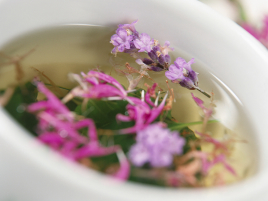Digesting Life
By Sutapa Das | Июн 21, 2013

How should we react to life’s challenges?
To answer this question, a teacher once told his student to bring a cup of boiling water, a potato, some cotton wool and a bottle of herbs. The teacher plumped the potato into the cup. After some time the hard potato crumbled: “Some people become an emotional wreck and fall apart in difficult times – don’t be like this” he said. Next, the cotton wool was dipped into the boiling water. A few minutes later the soft substance had become solid and impenetrable: “other people become hard-hearted and emotionally indifferent – don’t be like this” he said. The herbs were then thrown in. Almost instantaneously a wonderful aroma began to emanate from the cup: “a few unique individuals use life’s challenges to bring out their best – be like this!” he concluded.
An interesting concept indeed. Sometimes we allow life’s challenges to overwhelm us. We become emotionally entangled and visibly frustrated. Not nice. On the other extreme, however, we may artificially erect a tough exterior and shut it all out. We resist the desire to react and opt to ignore. Facing challenges, however, is not just about gritting your teeth, disregarding emotion, and getting on with life. The external resilience will not cover up the internal unrest forever.
Undigested food turns and twists in the stomach; neither comfortable nor nourishing. Similarly, if we don’t internally digest life’s challenges, the emotions we neglect today will likely come back to haunt us in the future. Real tolerance is about good digestion. You accept what has happened, assimilate the events with spiritual insight, identify the lessons to learn, and let the rest go and move on. This approach liberates us from any negativity and helps us grow from the experience. The karmic law is all about character development.















